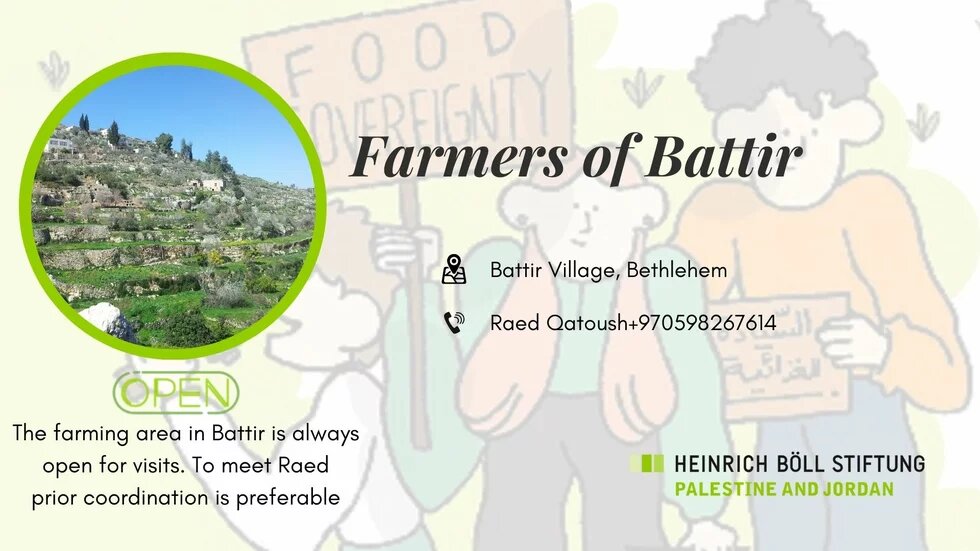
With the many scenic villages and towns in Palestine, it is very difficult to agree on which is the most beautiful, but Battir is definitely a village that is captivating and memorable in every way. Whether it is the ancient stone terracing or the irrigation systems dating back to the Roman times or the fascinating traditional agricultural practices and community resilience, no wonder this historic marvel is now considered a protected cultural heritage site by the UNESCO. This status was granted in 2014 after a strong campaign and collective effort to add it to the list of protected heritage sites. That indeed did not stop the Israeli occupation from destroying another cultural and traditional backbone of our history. The proposed route of the illegal Segregation Wall threatens to destroy this heritage site and cut off farmers from their farmlands.
Battir’s uniqueness is in its community-based water management systems, which are maintained by the eight families of Battir. The unique eight days per week in Battir is due to the fact that the water is allocated to a family per day, exemplifying the interconnectedness of the community, their belonging to the land and spirit of sharing of its rich natural resources.
Raed Qatoush is one of the farmers who have been producing seasonal produce for decades. He explains that the land satisfies all his food needs and that eating from what you plant is a blessing that you cannot replace by buying commercial fruits and vegetables. Currently, his land is planted with winter specials like beans, spinach, cauliflower, and green onions. Clients come to buy his produce from Bethlehem and Beit Jala every weekend and he is happy to receive more customers. “If you don’t find what you’re looking for on my land, we will find it for you from other local farmers. We are a community and we support each other”. Traditional farming methods and irrigation systems are used in Battir. Manure is used to strengthen crops and little to no pesticides are used. Raed along with other farmers in Battir also preserve local baladi (traditional) seed varieties in each season to be used for following ones.
If you have never been to Battir, we advise you to stroll down Makhrour Valley from Ras Beit Jala to Battir in April. The spring season offers the most beautiful and scenic landscapes that will leave you breathless. Battir is famous for the Battiri eggplants, which is a delicious local type of eggplant, known for its texture and unique taste. Since traditional farming methods remain intact in Battir, you can get all the unique and tasteful seasonal baladi products that you want.
____________________________________________________
Product Availability: Seasonal year-round.
Product Selling Points: Battir’s market.
Volunteering Opportunities: The need for volunteers varies depending on the season. Prior coordination is advised.
Other Services: A number of tours are available for people to discover Battir.